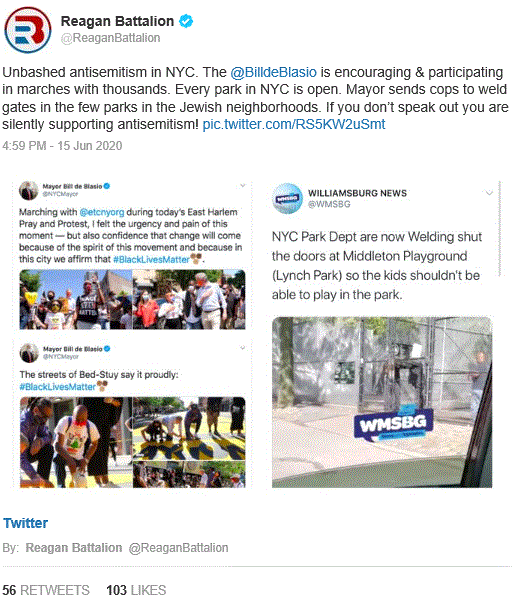Sefatia Romeo Theken, the Mayor of Gloucester, Massachusetts, recently made some highly offensive and unprofessional comments bashing people for getting together on boats.
“I’m tired of everyone’s baloney,” she said in an interview with WHDH. “If you want to go in the ocean, respect it. Just because it’s open doesn’t mean it’s all yours.” These comments were directed at people who have the audacity to go boating, tie their boats together with other boats, and go swimming together in the ocean.
How does the decision of people to do an activity that does not harm anyone and does not infringe on anyone else’s rights constitute “baloney”? How can someone be “tired” of something that does not affect her and is not her business? And how does getting together with people on other boats constitute treating the ocean like it’s “all yours”? Doing this does not prevent other people from using the ocean in any way; therefore I do not see what is wrong with it. The true baloney is politicians’ belief that they have the right to tell individuals what they are and are not allowed to do. The people of Massachusetts are the ones who should be tired of her baloney, not the other way around.
In a different interview, Theken criticized boaters for “putting everyone else’s life in jeopardy.”
“It’s not your constitutional right to come onto a beach,” she continued. “It’s not your amendment. It’s respect. What happened to respect? You’re not entitled to this. We all work for it. We’re supposed to be in it together. Massachusetts for Massachusetts. Gloucester is a welcoming community all the time, but respect us. That’s all I’m asking — respect.”
Actually it is everyone’s constitutional right to come onto a beach. There is no amendment to the Constitution that includes the word “beach,” but that does not mean people do not have a constitutional right to go there. The Ninth Amendment to the Constitution states: “The enumeration in the Constitution, of certain rights, shall not be construed to deny or disparage others retained by the people.” And the Tenth Amendment states: “The powers not delegated to the United States by the Constitution, nor prohibited by it to the States, are reserved to the States respectively, or to the people.” These amendments mean that anything not explicitly prohibited in the Constitution is allowed. The Constitution does not include any language prohibiting people from going to the beach or from gathering together with other boaters on the ocean; therefore people have a constitutional right to do both these things.
Additionally, regardless of what the Constitution says, people have a moral right to go to the beach and get together with other boaters if they wish to. Yes, doing so carries an increased risk of virus transmission compared to boating solo or staying in one’s house. But it is incorrect to say that doing so “puts everyone else’s life in jeopardy.” The virus puts everyone’s life in jeopardy. People have no moral obligation to actively work to reduce transmission of the virus; therefore the fact that an activity carries an increased risk of transmission does not make the activity morally wrong. In other words, contrary to Theken’s claim, people are entitled to go to the beach and to do any activities they wish there, so long as those activities do not interfere with other people’s ability to do the same.
What is morally wrong is Theken’s nasty criticism of people who have done nothing to deserve it, as well as her apparent belief that she has a right to tell other people what they are and are not allowed to do. Her talk of respect is ludicrous. There is nothing disrespectful whatsoever about what these boaters are doing. They are minding their own business and doing an activity that they have every right to do. Theken, on the other hand, is demonstrating profound disrespect: disrespect for her fellow human beings, disrespect for individual liberty, and disrespect for the fact that people have different tolerances for risk and the right to make decisions accordingly. She has no right to ask for respect when she demonstrates not one iota of respect for the rights of others.
Making matters even worse, Theken tweeted similar sentiments to those that she expressed in interviews:
Speaking of Sea.. they think Covid doesn’t go out to Sea.. they been rafting boats & gathering it’s like a big swimming pool with boats when the raft.. just because being outside is low risk.. doesn’t mean there isn’t one.🤦♀️ https://t.co/NjsQcO4CPB
— Sefatia Romeo Theken (@STheken) August 11, 2020
I doubt anyone thinks that COVID doesn’t go out to sea. People are aware that boating get-togethers carry a risk of virus transmission but are willing to live with this risk, as is their right. Theken is correct that low-risk is not the same as zero risk. That is the whole point. People have a right to make their own decisions about how to manage risk. Some people prefer to be cautious and stay home as much as possible, while others are comfortable with group activities and believe that the benefits of these activities outweigh the risks. There is absolutely nothing wrong with that. Does Theken believe that only activities with zero risk of virus transmission are acceptable? That is utterly preposterous – every activity, including grocery shopping, mailing a letter, walking down the street, or receiving a delivery, carries some risk – yet it is what the above tweet implies.
These comments demonstrate a lack of professionalism, poor command of both logic and grammar, and most importantly, a disturbing tendency towards authoritarianism. I don’t even live in Gloucester, but I am tired of her baloney, and every resident of Gloucester should be as well.


